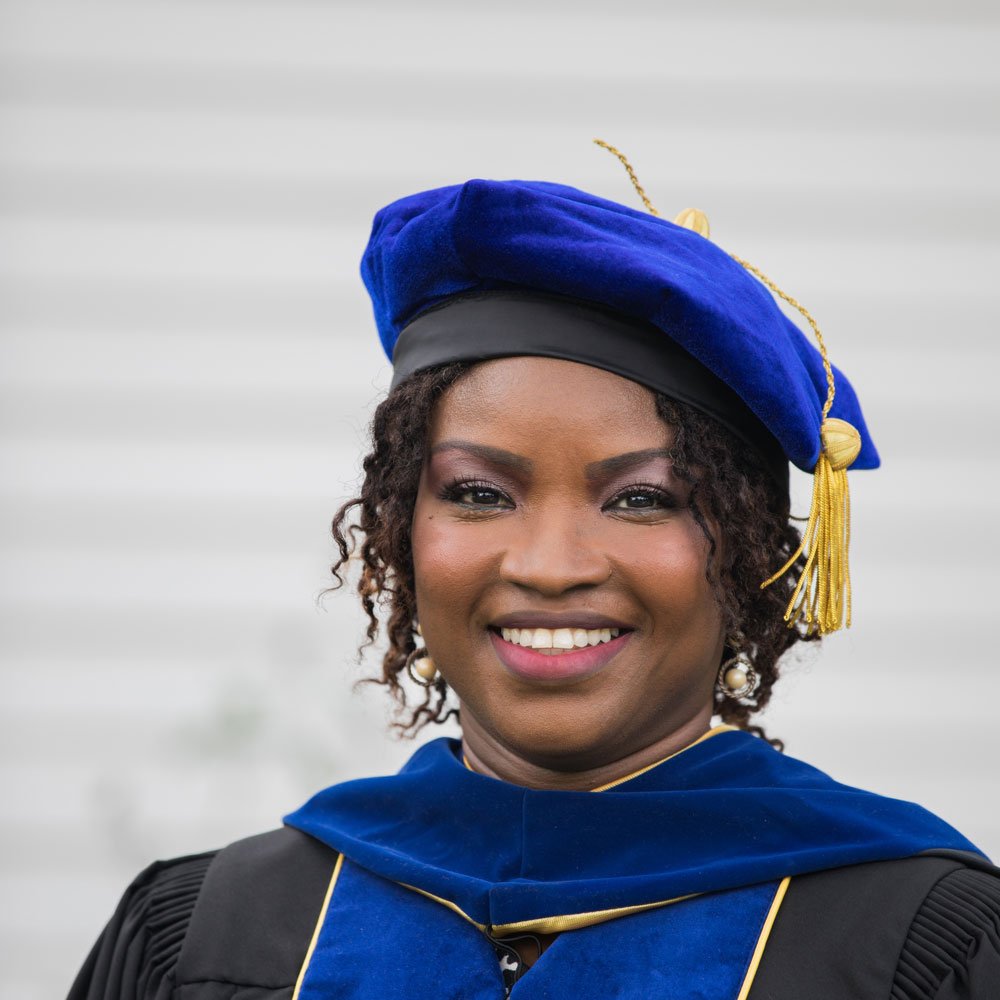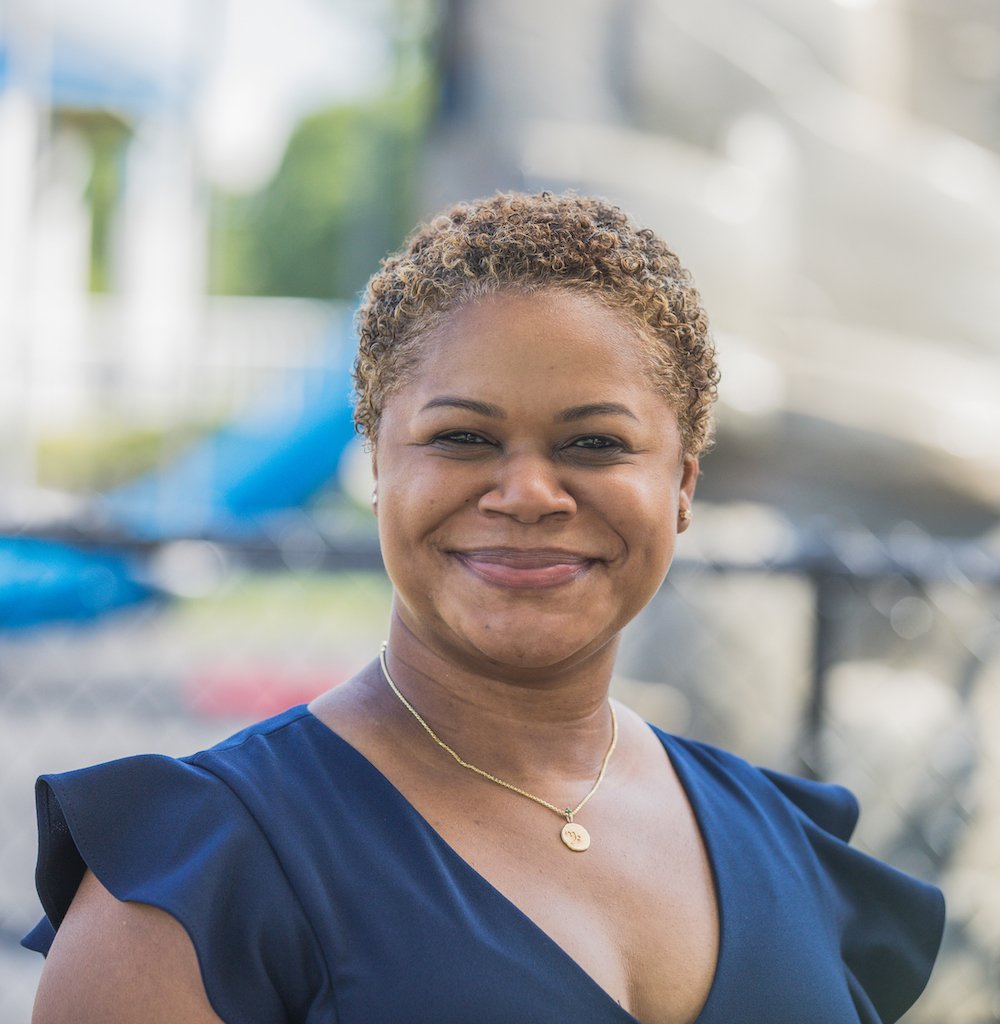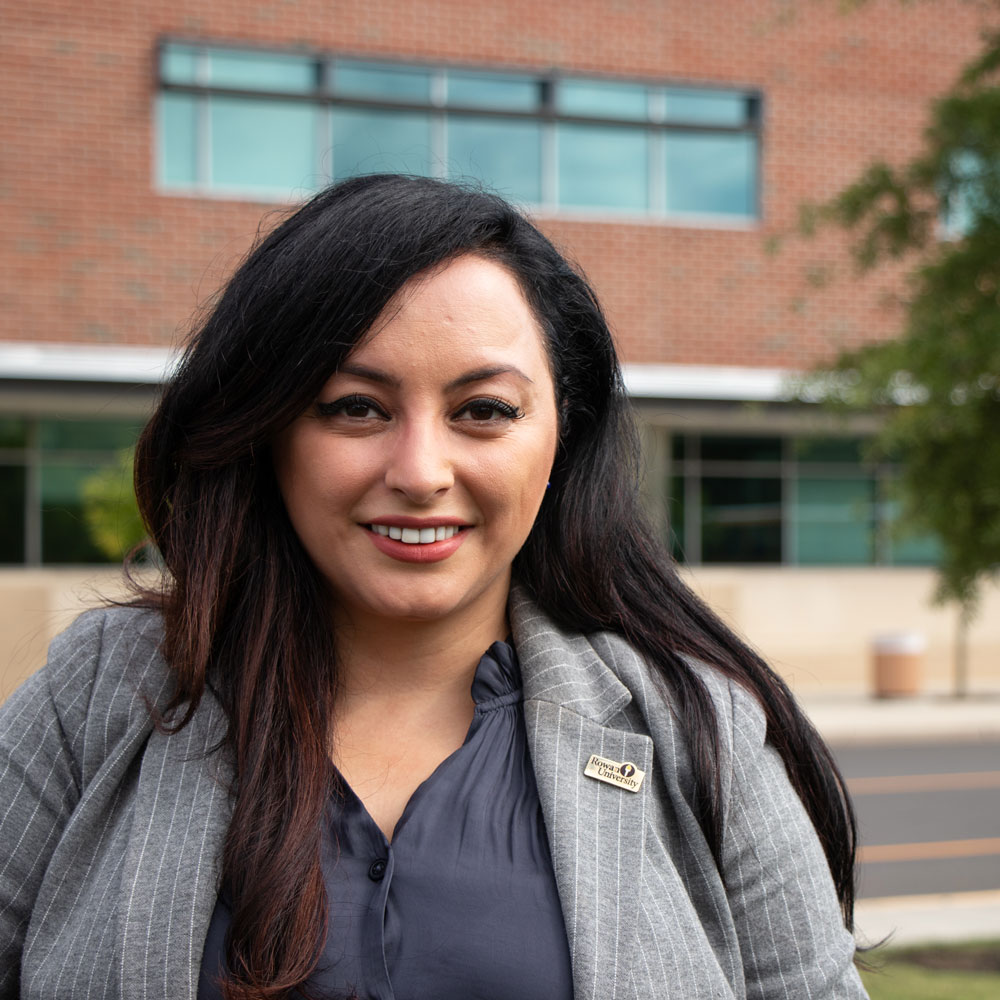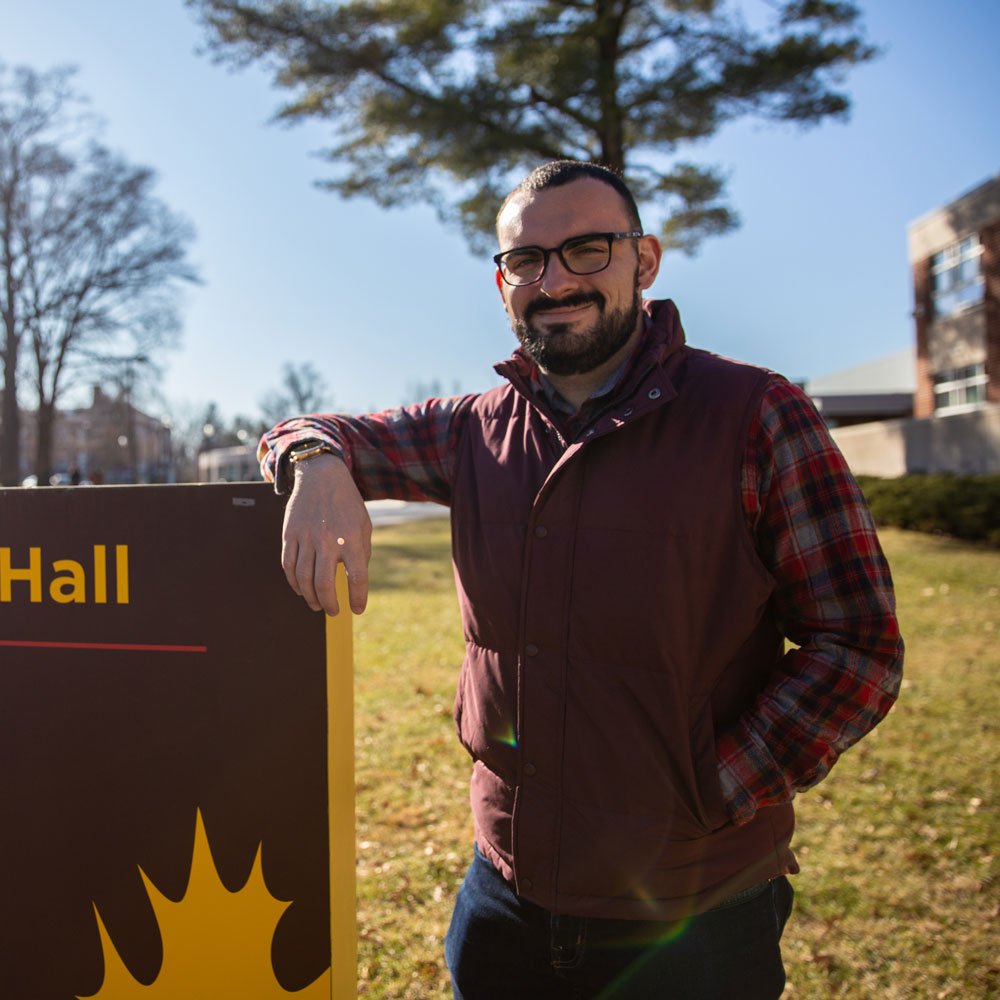
Ph.D. in Education

Program Overview
The Ph.D. in Education offers concentrations in higher and postsecondary education, counselor education, literacy education, special education, and urban and diverse learning environments. Our students are tasked with responding to the region's, nation's, and the world's most persistent educational challenges, those that obstruct access, success, and equity in traditionally underserved communities.
The Ph.D. in Education is a multi-disciplinary research-focused degree anchored in the educational complexities of access, success, and equity that is designed to prepare candidates globally to assume roles as faculty and researchers in one of four concentrations: Counselor Education, Literacy Education, Higher and Postsecondary Education, Special Education, and Urban and Diverse Learning Environments. The unique underpinning of this program is the intersection of two primary research foci: (1) a commitment to redressing systemic and persistent barriers to quality education and (2) a dedication to using rigorous empirical research with area schools, districts, colleges, and other educational partners to improve equity in educational outcomes. The Ph.D. offers its candidates opportunities to engage in research, college level teaching, and clinical experiences that respond to the regions and the nation’s persistent challenges with educational access and equity in traditionally underserved communities.
The following courses make up the Ph.D. in Education.
- 72 Semester Hours
- Foundation Courses: No
- Graduation / Exit / Thesis Requirements: Yes
| Course Number | Title | S.H. (Credits) |
|---|---|---|
| Required Courses: 21 S.H. | ||
| CASE 90800 | Current Issues and Research in Access, Success, and Equity in Education | 3 |
| CASE 90801 | Research Seminar in Access, Success and Equity II (students enroll in this course twice for a total of 6 credits) | 3 |
| CASE 90802 | Internship in the Academic Profession, Professoriate, and Promoting Student Success | 3 |
| CASE 90803 | Equity, Success, and Access Educational Research | 3 |
| CASE ----- | Special Topics as determined by cohort | 6 |
| Research Courses: 15 S.H. | ||
| CASE 90718 | Research Literature Analysis and Writing | 3 |
| CASE 90810 | Quantitative Research Methods in Education | 3 |
| CASE 90811 | Multivariate Research Methods in Education | 3 |
| CASE 90812 | Qualitative Research Methods in Education | 3 |
| CASE 90813 | Survey Research Methods in Education | 3 |
| CASE 90814 | Advanced Qualitative Research Methods in Education | 3 |
| CASE 90815 | Single Subject Study Design in Education | 3 |
| CASE 90816 | Mixed Methods Research in Education | 3 |
| CASE 90817 | Experimental Design Research Methods in Education | 3 |
| Counselor Education Concentration Courses: 15 S.H. | ||
| CASE 90820 | Advocacy, Leadership, and Professional Issues in Counselor Education | 3 |
| CASE 90821 | Advanced Practicum in Counseling for Equitable Career and College Readiness | 3 |
| CASE 90822 | Advanced Theories of Individual and Group Counseling for Academic, Social/Emotional, and Career Development | 3 |
| CASE 90823 | Supervision in Counselor Education | 3 |
| CASE 90824 | Advanced Theories in Family and Systems Counseling, Consultation, and Community Engagement for Educational Access | 3 |
| CASE 90825 | Practicum in Counseling Supervision | 3 |
| CASE 90826 | Advanced Assessment and Program Evaluation Procedures in Counseling for Access, Equity, and Success | 3 |
| Higher and Postsecondary Education Concentration Courses: 15 S.H. | ||
| CASE 90830 | Foundations of Student Access, Retention, & Equitable Outcomes in Postsecondary Education | 3 |
| CASE 90831 | Organizational Analysis and Administration of Postsecondary Education | 3 |
| CASE 90832 | International and Comparative Higher Education | 3 |
| CASE 90833 | Public Policy and Analysis in Postsecondary Education | 3 |
| CASE 90834 | Student Learning & Development: Impact of Postsecondary Education | 3 |
| CASE 90835 | Theoretical and Conceptual Frameworks in Higher Education | 3 |
| CASE 90836 | Assessment and Evaluation in Postsecondary Education | 3 |
| Language and Literacy Concentration Courses: 15 S.H. | ||
| CASE 90840 | Theoretical Perspectives in the Study of Literacy | 3 |
| CASE 90841 | Transliteracy and Translingualism | 3 |
| CASE 90842 | Multicultural and Multilingual Issues in Literacy Education | 3 |
| CASE 90843 | Literacy as Practice in and Outside of School | 3 |
| CASE 90844 | First and Second Language Acquisition | 3 |
| CASE 90845 | Children’s Literature and Literacy Theory | 3 |
| CASE 90846 | Sociolinguistics and Discourse Analysis | 3 |
| Special Education Concentration Courses: 15 S.H. | ||
| CASE 90850 | Access, Success, and Equity in Special Education | 3 |
| CASE 90850 | Access, Success, and Equity in Special Education | 3 |
| CASE 90851 | Research to Practice in Special Education | 3 |
| CASE 90852 | Program Evaluation and Planning in Special Education | 3 |
| CASE 90853 | Leadership, Policy, and Ethics in Special Education | 3 |
| CASE 90854 | Personnel Preparation and Effective Teaching in Special Education | 3 |
| CASE 90855 | Evidence Based Practices in Special Education | 3 |
| CASE 90856 | Current Issues in Special Education | 3 |
| Urban and Diverse Learning Environments Concentration Courses: 15 S.H. | ||
| CASE 90710 | Power & Privilege: The Social Construction of Difference | 3 |
| CASE 90512 | Examining Intersectionality: Critical Theories of Race, Class, Gender, Sexuality, and Citizenship | 3 |
| CASE 90513 | History of Urban Education and Communities | 3 |
| CASE 90531 | Critical Consciousness: Sharing Power and Voice with Students | 3 |
| CASE 90532 | Working with Families and Communities | 3 |
| CASE 90533 | Critical Pedagogy | 3 |
| CASE 90540 | Urban Education Policy and Reform | 3 |
| CASE 90541 | Leadership for Social Justice and Educational Equity | 3 |
| CASE 90542 | Engaging in Education and Community | 3 |
| Dissertation Research Course: 21 S.H. | ||
| CASE 90890 | Dissertation Research | 21 |
*CASE 90801 and CASE 90802 are required to be taken twice.
*Only one course is required from the following: CASE 90813, CASE 90814, CASE 90815, CASE 90816, or CASE 90817
Note: The courses listed above are not official and are subject to change. For an official list of available courses please visit the Rowan Global section tally.
The following is a list of items required to begin the application process for the program. There may be additional action or materials required for admission to the program. Upon receipt of the materials below, a representative from the Rowan Global Admissions Processing Office will contact you with confirmation or will indicate any missing items.
- Completed Application Form
- $65 (U.S.) non-refundable application fee
- Official transcripts from all colleges attended (regardless of number of credits earned)
- Master’s degree (or its equivalent) from an accredited institution of higher learning
- Essay (1,500 words max.): Why are you applying to a program that focuses on access, success, and equity?
- Recommended minimum cumulative GPA of 3.0 (on a 4.0 scale)
- Three Letters of Recommendation
- Academic Writing Sample
- Curriculum Vitae/Resume
- Evidence confirming 2 years of relevant work experience (can include internships)
Deadlines, Tuition and Financial Aid
The chart below details available entry terms for the Ph.D. in Education program as well as corresponding application deadlines. Submitting the Application Form is only the first step to beginning the admission process. All of the required materials listed above must be received on or before the application completion deadline for your desired entry term to be considered for admission to that term. We encourage you to complete the application form and begin submitting your materials at least one month before the deadline indicated.
| Entry Term | Application Deadline |
|---|---|
| Fall | March 1 |
At Rowan University, we pride ourselves on being vigilant and frugal about tuition. We work hard to provide quality education while seeking to reduce the barrier that college costs can present students.
RatesWe know paying for tuition can be a challenge. That is why Rowan provides students with the financial resources needed to put their education first by offering grants, loans, work-study, and scholarships.
More InfoThe chart below details available entry terms for the Ph.D. in Education program as well as corresponding application deadlines. Submitting the Application Form is only the first step to beginning the admission process. All of the required materials listed above must be received on or before the application completion deadline for your desired entry term to be considered for admission to that term. We encourage you to complete the application form and begin submitting your materials at least one month before the deadline indicated.
| Entry Term | Application Deadline |
|---|---|
| Fall | March 1 |
At Rowan University, we pride ourselves on being vigilant and frugal about tuition. We work hard to provide quality education while seeking to reduce the barrier that college costs can present students.
RatesWe know paying for tuition can be a challenge. That is why Rowan provides students with the financial resources needed to put their education first by offering grants, loans, work-study, and scholarships.
More Info
I met professors who became committed to me as a person, believed in my work and confirmed for me the ideologies and philosophies put forth in my work and research.Madjiguene F. Camden County, NJ

For me, I never shy away from an opportunity to practice my craft … I take the opportunity to inject myself into areas where I get to practice.Erica B. Camden County, NJ

The Rowan community is exceptionally friendly and the diversity this campus houses is refreshing. It makes an international student, such as myself, feel more welcomed.Sanaz S. Iran-Tehran

I chose Rowan’s program because it connected me with faculty on a one-on-one level and allowed me space to explore different career and research paths.Donn G. Naples, FL

This program will prepare me to become a critical educator in a world that really needs people who care. My research will focus on equity and art education.Beatrice C. Camden County, NJ
